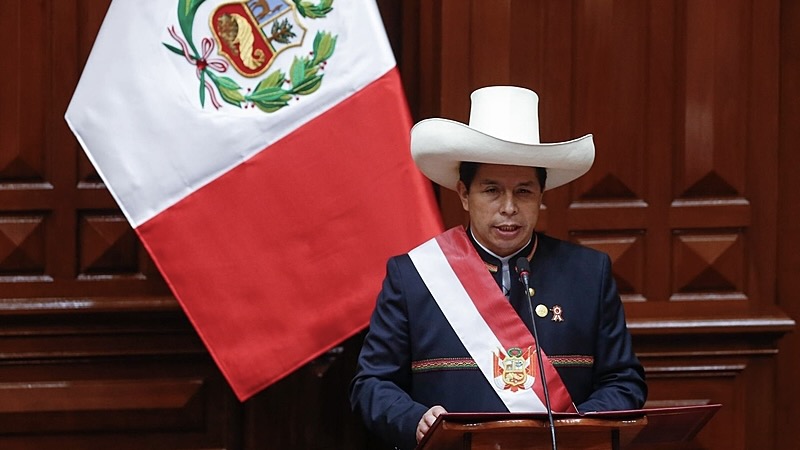President Pedro Castillo on Thursday June 30 presented his irrevocable resignation from the Free Peru party, by which he was elected last year. “I respect the party and the bases built in the campaign. I reaffirm my commitment to continue working and promoting the changes contained in the Bicentennial program in a democratic country and together with all Peruvians,” the head of state wrote.
The resignation comes in response to a request from the political committee of the party, which accused Castillo of breaking with party unity in a statement published on Tuesday June 28. According to Vladimir Cerrón, president of Free Peru, the Peruvian president had been encouraging people to disaffiliate to fracture the party.
“We also highlight that the policies undertaken by his government are not in line with what was promised during the electoral campaign and even less with the party program, implementing a losing neoliberal program,” they state in a statement.
Deputy Margot Palacios told local media that the president had offered her positions in ministries in exchange for her resignation. Free Peru has the largest number of congressional seats, with 37 members of congress.
Pedro Castillo joined the Free Peru party in September 2020, after gaining national visibility by leading a national teachers’ strike.
In one year in office, the Peruvian president has changed his ministerial cabinet on five occasions. In each of the reforms, Free Peru supporters and other leftist parties that supported his candidacy, such as New Peru, have been losing space in the government.
The presidential announcement comes at the same time that the country is experiencing another strike by transport workers. The unions are demanding lower fuel prices and new policies that guarantee an 80% subsidy. For three days, transport workers’ unions have been blocking highways in the regions of Arequipa, Cusco, Puno and Ica. In the capital Lima alone, there are 16,000 buses sitting idle, according to the Urban Transportation Chamber.
The truck drivers also announced that they will join the strike, starting in July, demanding the regulation of tolls, a reduction in the price of diesel and the restitution of freight transport as a public service. The liter of gasoline costs 4.05 soles (about R$5.60), while diesel is at 3.38 soles a liter (R$4.69) – registering an increase of about 40% only in 2022. According to the government, the main reason would be the increase in the international price of fuel and the impacts of the pandemic.
The president of the Free Peru party, Vladimir Cerrón, argues that only a new constitution can solve the strikers’ problems. Constitutional reform was one of Castillo’s main campaign proposals. In April, deputy Margot Palacios presented a bill to call for a Constituent Assembly in Peru. The proposal was not approved by Congress.
The Peruvian Magna Carta was approved during Alberto Fujimori’s regime in 1993 and has no mechanism to reform it through popular consultation. Fujimori came to power in 1990 and remained in charge of Peru for ten years after carrying out an self-coup and, with the support of the military, closing down the country’s Congress. The former dictator was sentenced to 25 years in prison for crimes against humanity.
This article was first published in Portuguese at Brasil de Fato.





